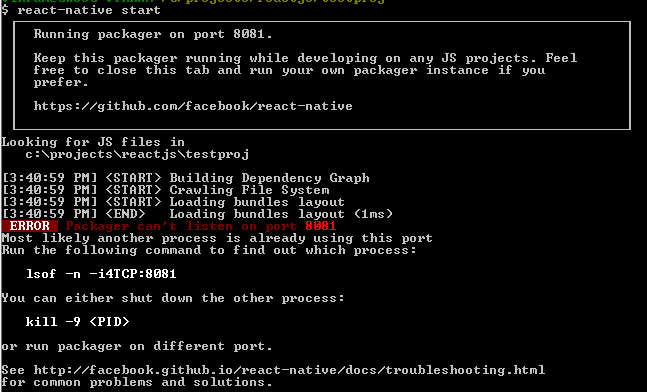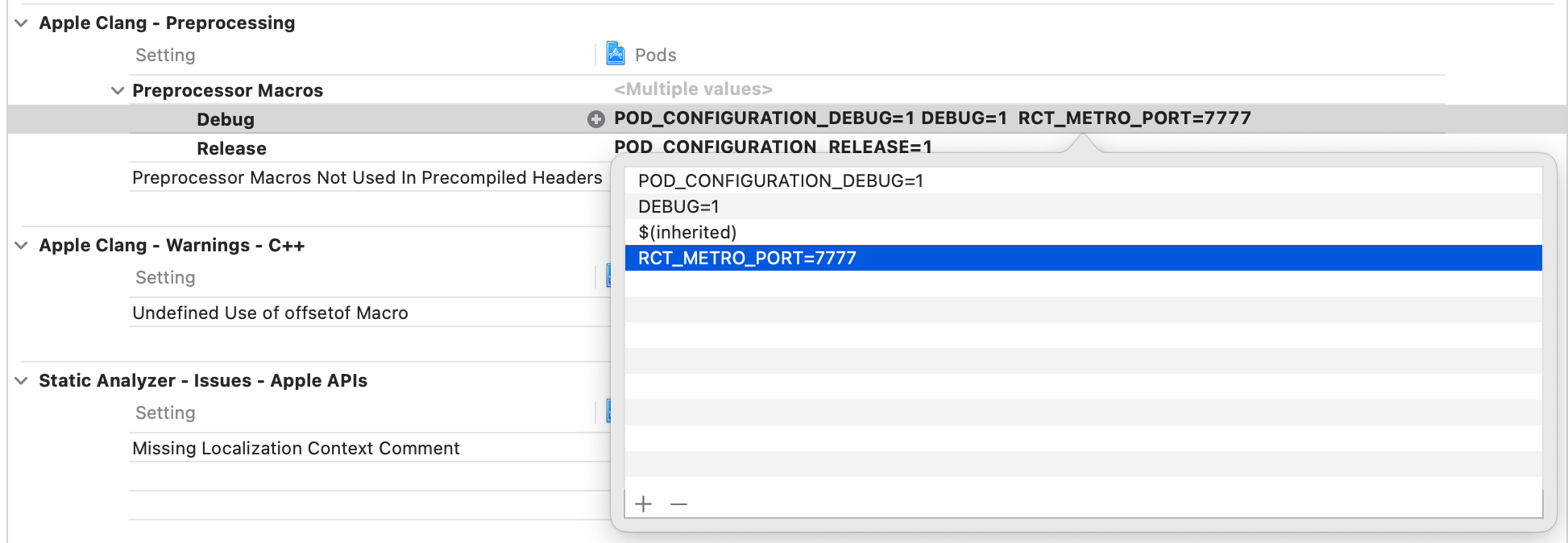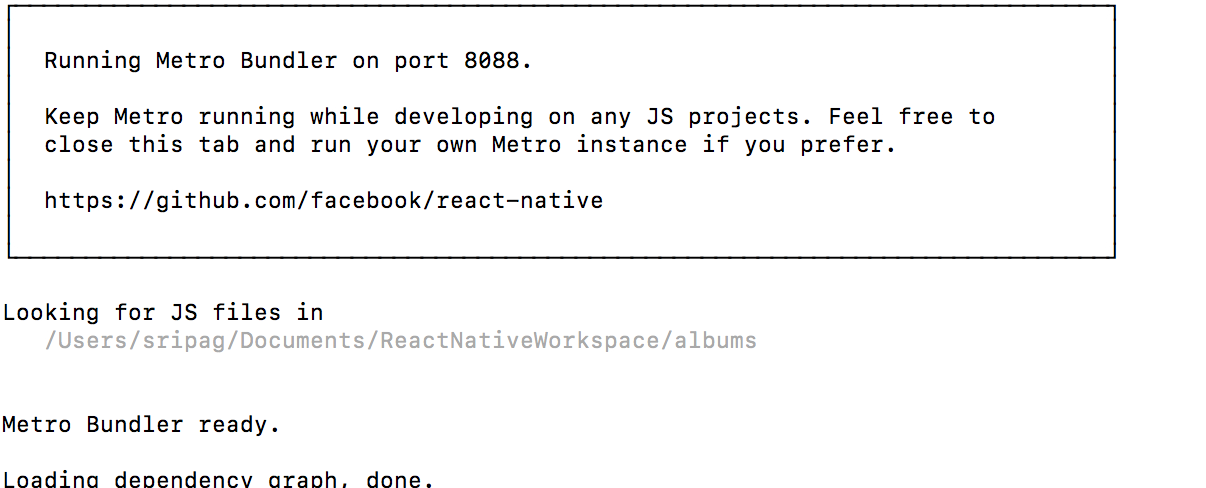I am using react native android and having face issues to deploy the app on an android device. When I run
react-native start, it won't start dev server on port
8081
I have tried a few options mentioned at:
Tried to stop the process running at port number 8081, but no success
My question is that can we change the React Native dev server port from 8081 (which is a default in android however the same we can change in ios from AppDelegate.m file) to something else or any other approach
Your responses will be highly appreciated. Thanks




